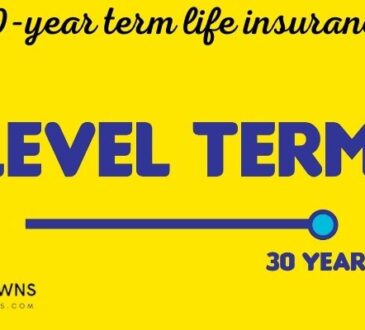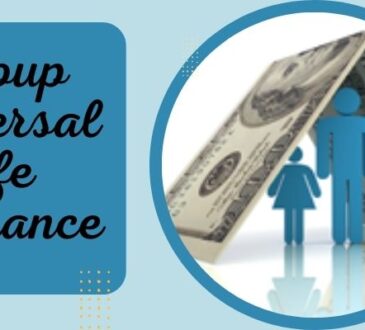
It could be more difficult for you to find affordable life insurance coverage if you smoke, have a pre-existing medical condition, have a family history of chronic illness, or engage in high-risk hobbies or work. That’s because life insurance companies will consider those elements when deciding your premiums and your eligibility for coverage.
There may yet be a solution available to you if your medical history or way of living have made it difficult for you to obtain a life insurance policy. Let’s ladiestowns.com Learn more about guaranteed issue high-risk life insurance in this post.
What Is Guaranteed Issue Life Insurance?

Guaranteed issue life insurance, also known as guaranteed acceptance life insurance, is a type of whole life insurance that doesn’t need you to have a physical examination or answer any health-related questions, and it also doesn’t allow the insurance company to inquire into your past medical conditions or use of prescription drugs. It also goes by the terms “no questions asked final expense insurance” and “no questions asked life insurance.”
Your beneficiaries will still receive something, even though it won’t be as much as you’d like. Insurance companies implemented this waiting period because everyone may register for insurance on their deathbed and pay a few hundred dollars to receive a $25,000 reimbursement for their family. Everyone would have been able to do so if they hadn’t. An insurance company could not carry on in this manner. Guaranteed issue life insurance provides protection for those who might not otherwise be able to get life insurance.
How Guaranteed issue high-risk life insurance Works

Given these age constraints and the lack of medical underwriting (health concerns), it is obvious why insurance providers offer guaranteed issue plans to people in this age range. However, there are plenty of people in this age group who don’t need Guaranteed issue high-risk life insurance, including those with health problems. Those who lack access to other options owing to their health or who cannot afford other options due to their health are the best candidates for this type of insurance.
Which medical conditions will make it impossible for you to get any other high-risk health insurance? Not as many as you may expect.
- Your life expectancy is fewer than two years due to a fatal illness.
- You’ve undergone or are undergoing an organ or tissue transplant.
- You’re receiving dialysis.
- You suffer from dementia or Alzheimer’s.
- You’re at a hospice or a nursing home.
- You have cancer, and it’s not skin cancer made up of basal or squamous cells.
- You carry HIV or AIDS.
- You have a persistent sickness or ailment that has caused you to use a wheelchair.
If you’ve ever had an elderly father or grandmother, you probably have some acquaintance with the appearance of someone who has one or more of these conditions. They have both successful and unsuccessful days. They occasionally come around and seem better than ever when you think they are going to die. They may appear to be highly unstable in terms of their physical capabilities, emotional dispositions, and physical health. Most insurance companies find this kind of unpredictability to be too risky, but some specialize in covering it.
Guaranteed issue high-risk life insurance

A medical exam or application are not necessary for life insurance that is assured issuance, or guaranteed acceptance. Some businesses have an upper age limit, often between 80 and 85. If you meet the insurer’s age requirements and other standards, you are guaranteed coverage.
However, there are some costs associated with purchasing Guaranteed issue high-risk life insurance. Some of them consist of:
- increased premiums
- Low death benefit amounts are typical
- If the insured passes away during the first two to three years of coverage, as specified in the policy, beneficiaries may get a lesser death benefit or merely a refund of payments.
Despite being a kind of whole life insurance policy, Guaranteed issue high-risk life insurance doesn’t build up cash value. Because the small death benefit is frequently used to pay for funeral costs, it is also sometimes referred to as burial insurance or a final-expense policy. It may not be enough to cover other significant expenses like paying off a mortgage or settling an estate as many life insurers only provide coverage of up to $25,000.
Guaranteed Issue: What’s the Catch?
Guaranteed issue high-risk life insurance might seem too good to be true, except from the waiting period. Unhealthy individuals purchase plans, pay premiums, and pass away in a few months or years. Either the money must be returned or a death benefit must be paid by the insurance company. How are the insurance companies even able to provide these policies?
According to life insurance broker Anthony Martin, the CEO of Choice Mutual, “The way life insurance companies make a bulk of their profit is not via the collection of premiums less death benefits.” The majority of their income comes from investments. According to Martin, life insurance premiums are essentially interest-free loans to the insurance firm. That cash is invested by the business.
According to the Insurance Information Institute, a nonprofit media outlet backed by the insurance business, life insurance firms earned $200.8 billion in net investment income and $159.5 billion in premiums in 2021.4 Investments made by insurance companies include derivatives, real estate, mortgages, stocks, and other assets.
“For guaranteed issue, they do lose money on clients who die in the first two years,” claims Martin. This kind of insurance requires five years for the insurance company to break even, and in most circumstances it benefits both the insured and the insured. The only situation in which the insured would lose money, he continues, “is if they live long enough that their premiums exceed the policy.”





